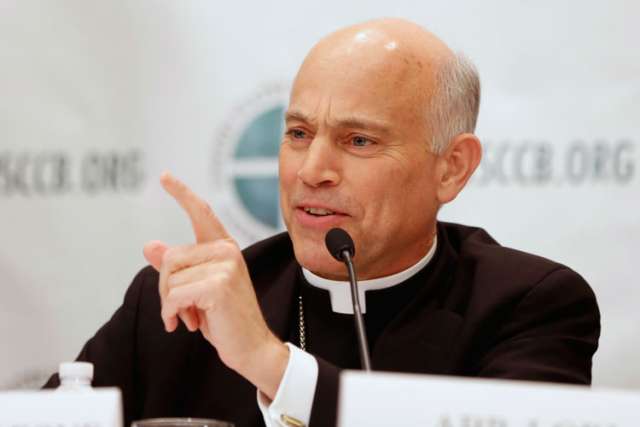The June 19 march aims at affirming “the great good of bringing the two halves of humanity together so that a man and a woman may bond with each other and with any children who come from their union,” San Francisco Archbishop Salvatore Cordileone wrote in response to critics who asked him not to attend the rally.
This is the second year the march has been held, and despite repeated setbacks in the courts and in public opinion, organizers hope to bring thousands of supporters to march from the U.S. Capitol to the Supreme Court. Speakers include two former Republican presidential candidates, Mike Huckabee and Rick Santorum.
Cordileone’s critics, led by dozens of religious activists and California politicians including Lt. Gov. Gavin Newsom and House Minority Leader Nancy Pelosi, said the demonstration is sponsored by “some of the nation’s most virulently anti-LGBT organizations and leaders.” They singled out the National Organization for Marriage and the Family Research Council.
Pelosi told Cordileone in a letter that the group’s views were “venom masquerading as virtue.” Critics who signed another letter to Cordileone said that the National Organization for Marriage “connects homosexuality with pedophilia and incest” and that the Family Research Council has been designated a hate group by the Southern Poverty Law Centre because of the group’s harsh rhetoric.
Cordileone said the characterizations of the organizations are based on misinterpretations or are “simply factually incorrect.”
“Rest assured that if the point of this event were to single out a group of individuals and target them for hatred, I most certainly would not be there,” wrote the archbishop, who leads the Subcommittee for the Promotion and Defense of Marriage of the U.S. Conference of Catholic Bishops.
Cordileone also turned the tables on his critics, claiming that “there is plenty of offensive rhetoric” against same-sex marriage opponents. He said that while gay people have historically been subjected to violence and retribution, now gay marriage foes are losing their jobs for their views or even suffering physical assaults.
He closed by asking his critics not to stereotype him and his allies but to “get to know us first as fellow human beings.”
“In the end, love is the answer, and this can happen even between people with such deep disagreements,” he wrote. “That may sound fanciful and far-fetched, but it is true, it is possible … When we come together seeking to understand the other with good will, miracles can happen.”
Interestingly, both sides invoked Pope Francis, who when asked about the Church’s attitude toward gay people famously replied: “Who am I to judge?”
Cordileone asked his critics not to judge Church leaders, and his critics said Church leaders should not judge gay people.


